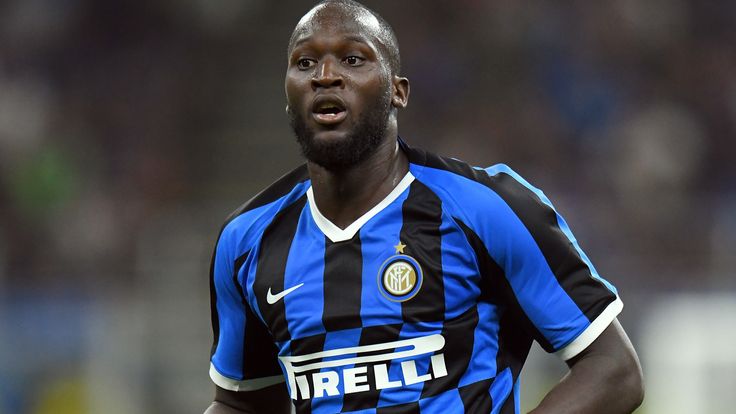"There is no doubt clubs and governing bodies have good intentions. But, aside from glossy PowerPoint presentations and well-crafted statements, will they actually change behaviours?"

Wednesday 4 September 2019 22:31, UK
Romelu Lukaku, Marcus Rashford, Tammy Abraham, Paul Pogba and Kurt Zouma. The list goes on.
Yet more players have been subjected to racist abuse, online or in person.
In the case of Lukaku, it highlights some complexities of a club's relations with its supporters.
In January, Inter Milan launched an anti-racism campaign adopting the acronym BUU - Brothers Universally United.
Their aim was: "… to turn the sound of jeers or boos, written as "buu" in Italian, into a positive message."
There is no question that their "Write it, don't say it" message is a powerful one but, in the last few days, couldn't they have done more?
"Our fans are special and they deserve a type of football that promotes positive and inclusive values," said Steven Zhang, Inter Milan president, in January.
But the fact is that Lukaku, an Inter Milan employee, suffered racial abuse during their last game. Monkey chants were heard and he was understandably extremely upset.
The fact is that some of the club's own 'Curva Nord' fans do not believe those chants were racist.
Where was the club statement condemning the remarks of the vocal few? More importantly, where was an action plan to ban and/or educate those supporters?
Yes, the overwhelming majority of fans will be law-abiding citizens. But more needs to be done.
Inter Milan feel they are doing enough on a daily basis to challenge discriminatory behaviour and their 'BUU' campaign has been regarded as a bold statement in Italy. They do not feel the need to comment on the inflammatory fan statement.
Cynics will suggest they do not want to publicly criticise an influential group of their own fans. If that is the case, it is pathetic.
In contrast, Cagliari said it wants to ban "those ignorant individuals whose shameful actions and behaviours are completely against those values".
UEFA say the matter is for the Italian Football Federation and won't get involved until discriminatory behaviour takes place in one of their competitions.
Inter Milan will play Borussia Dortmund, Barcelona and Slavia Prague in their Champions League group. Let's hope their supporters don't start to use some "ways" to try to "make our opponents nervous."
FIFA have yet to give their reaction to the statement from Inter's supporters.
The Professional Footballers' Association (PFA) should be rightly applauded for their latest action plan, which urges social media companies to permanently delete the accounts of anyone who has posted a racist comment.
Twitter's latest response still raises more questions than answers.
What, specifically, is the "swift action" they will take? What, exactly, are the "number of proactive measures" taken? They have yet to elaborate.
Twitter says it has taken action on more than 700 examples of hateful conduct in the last two weeks.
For context, Twitter has 126 million users every day. A tiny percentage of those users engage in racist behaviour but it still too many. Why are accounts allowed to remain anonymised? Where is the direct accountability?
There is no doubt that clubs and governing bodies have good intentions. But, aside from glossy PowerPoint presentations and well-crafted statements, will they actually change behaviours?
Much more action is needed. Talk is cheap.